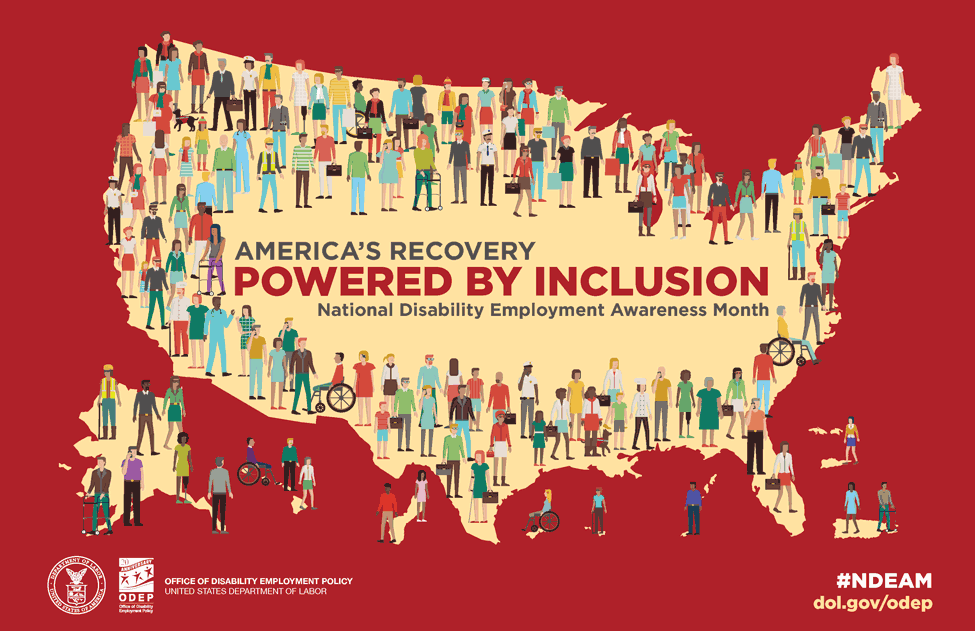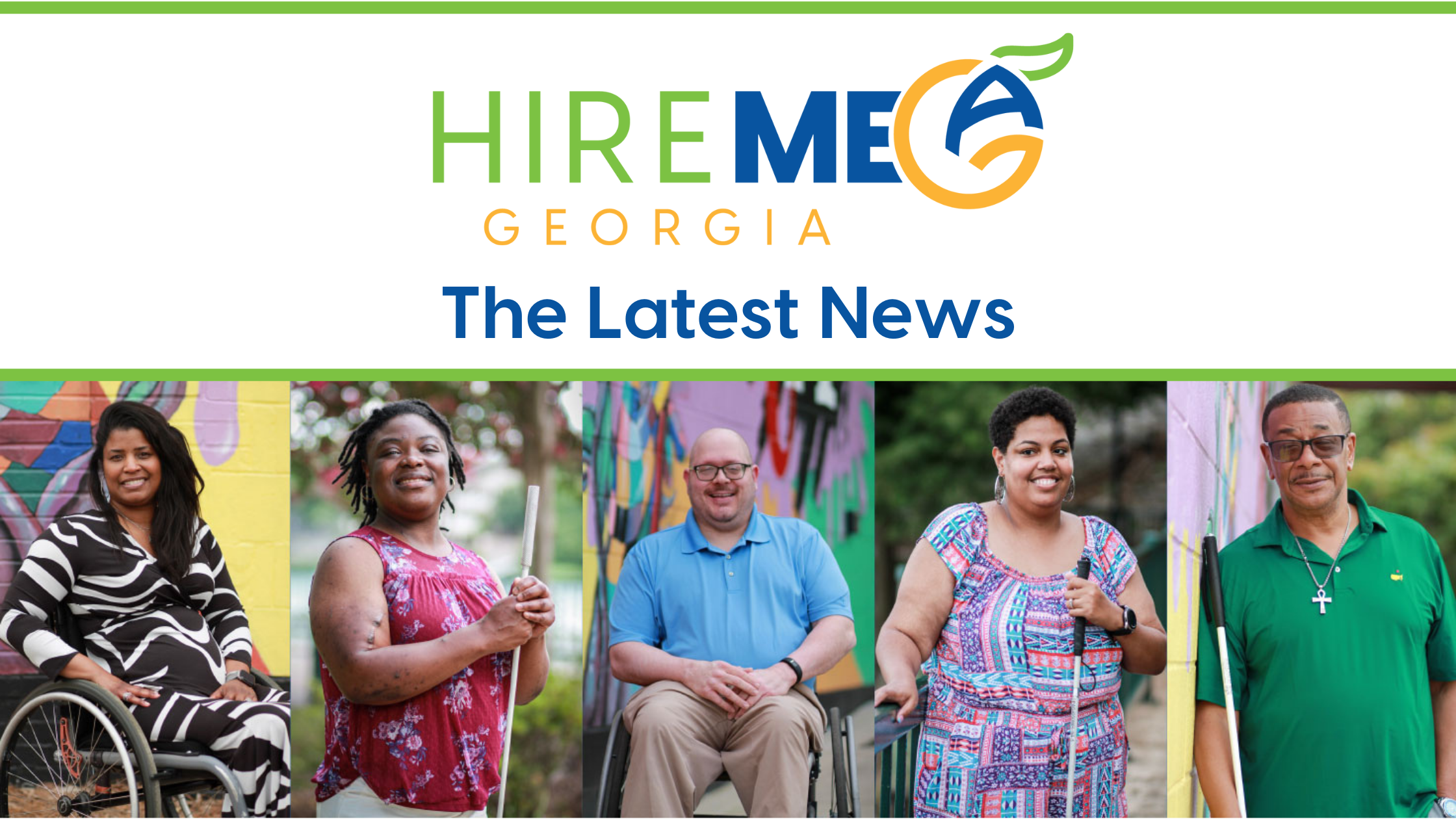It is estimated that in one year, 375,000 Americans will become disabled. For many Americans who become disabled over the course of their life, major shifts, recognition, and advancement have to come physically, mentally, and emotionally before they are able to move on to find employment. The barriers individuals with disabilities face and work though are a significant load on their lives, so when it comes to finding employment, those disabilities should not be the factor that prevents them from obtaining employment.
To highlight some of the barriers and mindset changes that are part of disability employment, we have met with someone who became disabled later in life to discuss her experiences and what employers and job seekers a like can learn from her journey.
Choosing Service
Kinga Kiss-Johnson, a Romanian-born American veteran, exemplifies the persistence, ability, and grit of many working Americans with disabilities. Kinga first arrived in the United States when she was recruited to play college basketball in Missouri. In her final year of college, Kinga witnessed a national tragedy that would change the course of many lives throughout our country – the terrorist attacks of 9/11. That one event that changed the course of many Americans’ lives, changed Kinga’s too. Thousands of soldiers were sent to fight in the war, and Kinga watched as death tolls and stories of mothers and father leaving their families behind was broadcast on our televisions. So, in an effort to keep those who needed to be there most at home, on her 30th birthday, Kinga walked into a recruiting station in Florida with her husband and signed up to be a part of the United States Military.
“I [wanted] to serve to keep one more mother or father from deploying again”
With those who’ve sacrificed in mind, she enlisted, joining the 173rd Airborne Unit in Germany. From Germany, she was deployed to Afghanistan where the unthinkable would happen. Kinga was critically wounded in the line of battle, changing life as she knew it.
She was left with a traumatic brain injury (TBI) and serious cervical spine injury- resulting in numerous spinal surgeries and memory loss. Kinga, who was a highly active woman prior to her injury, was now a paraplegic who depended on her husband for some of her most basic needs. Ultimately, Kinga was housebound for over a year and a half.
Shifting Mindsets
Every morning, from then to now, Kinga has had to think about the dramatic shift her life took all those years ago. Everything she did before she had to relearn how to do. Parts of Kinga’s body that helped her with her athleticism and her ability to do daily tasks, no longer functioned. But what she was not going to do, was let this moment define who she’d become.
“I was struggling with accepting the fact of disability…disability was taking over my body while trying to recover.”
In an effort to keep her head in rational space, she and her occupational therapist looked to activities Kinga could do outdoors, provide physical work, and keep her occupied. She knew she needed to get out of the house, so she searched for jobs, volunteer work, and community activities that could bring her back to herself.
Understanding the extent of both her injuries and abilities, Kinga, thought she wouldn’t be able to work again. She had trouble with her memory, she had to use a wheelchair when venturing outside of her home, she needed assistance in her daily life. Feeling as if all of the odds were stacked against her, she worried about who would hire her.
But, like he had been from the day he met her, Kinga’s husband had her back.
“I was blessed that I had a husband that stuck with me and took care of me for better or worse.”
At the time he was working for an ambulance company in town and at one of his stops, he noticed a “Back to Work” flyer. He brought it home to Kinga and she checked into it. That flyer would be one that changed the course of Kinga’s life.
Understanding There Are Options
Kinga wanted to help other people, other veterans, like herself, find the resources to get help as opposed to giving up on themselves. And though problems with her memory would create obstacles for her, she created patterns for herself that would help her through, like repeating things 3 times, or writing things down to aid in her memory.
“I may be slower or need to take notes and record to come back later, but they taught me that those are just tools that I can use to be able to be able to go back to work.”
And get back to work she did! After two interviews, Kinga would start at Walton Options, working part-time, a few hours a week.
“Any other [job] that I tried to get employed by, they looked at my service dog and would say ‘sorry.’”
While she was working, Kinga continued her outdoor activities and would go on to join the Paralympic Archery team, competing for team USA, in 2010. She would eventually move on to compete internationally.
Att one time Kinga worked for Deloitte, one of the Big Four accounting organizations and the largest professional services network in the world. She attended a technology training program for veterans with disabilities in hopes she could learn something which could help her work from home to reduce her commute and additional accommodations in the workforce. She had seen Deloitte before as a sponsor for The Warrior Games, while competing in archery, and she noticed how they lend support to veterans through consistent action. She would think to herself then, “If I get back into the workforce, I want to work for them.” So, during that fateful technology conference, when she saw a Deloitte booth, she knew this was her destiny.
Reach Out To Your Community
While working with Deloitte, for Kinga, was truly as rewarding as she thought it would be. “I had a great team that supports me, though I needed to still attend medical appointments and take care of [myself]. It’s a work-life balance…but they care about their [employees] with disabilities, and they care about their veteran employees.”
To those who may be newly disabled, and are struggling to find work, or lack confidence in their ability to excel, Kinga says, “reach out. Reach out to your community because there are so many resources in the community out there for you. Don’t be afraid to reach out.” She says, “These companies are not just buildings, but when you walk through the door, they look like you, and it’s because they are willing and they want to. They will give you the confidence you need.”
Employment Options Are Attainable
Kinga implores employers to think about hiring, “When you are hiring somebody for a job, you don’t see that disability, you are seeing their faces and hearing their voices. You see their resume and background check. Use those FACTS to hire by their qualifications and not by their disability. Somebody with a disability, who uses a wheelchair will not apply for a job where they have to walk five miles a day or lift 200 pounds.” She notes that “people with disabilities come up with more creative ways to complete a job because they will always try to prove to you that they can do the job.” She ends by hoping employers lead with compassion and not pride when hiring people with disabilities.
We look to Kinga and her words, with the hope that others take heed, both employers and those seeking employment to know that people with disabilities, when determined and ready, can conquer any goal. Ability does not define anyone, but a passionate and determined mindset can create the greatest impact.



